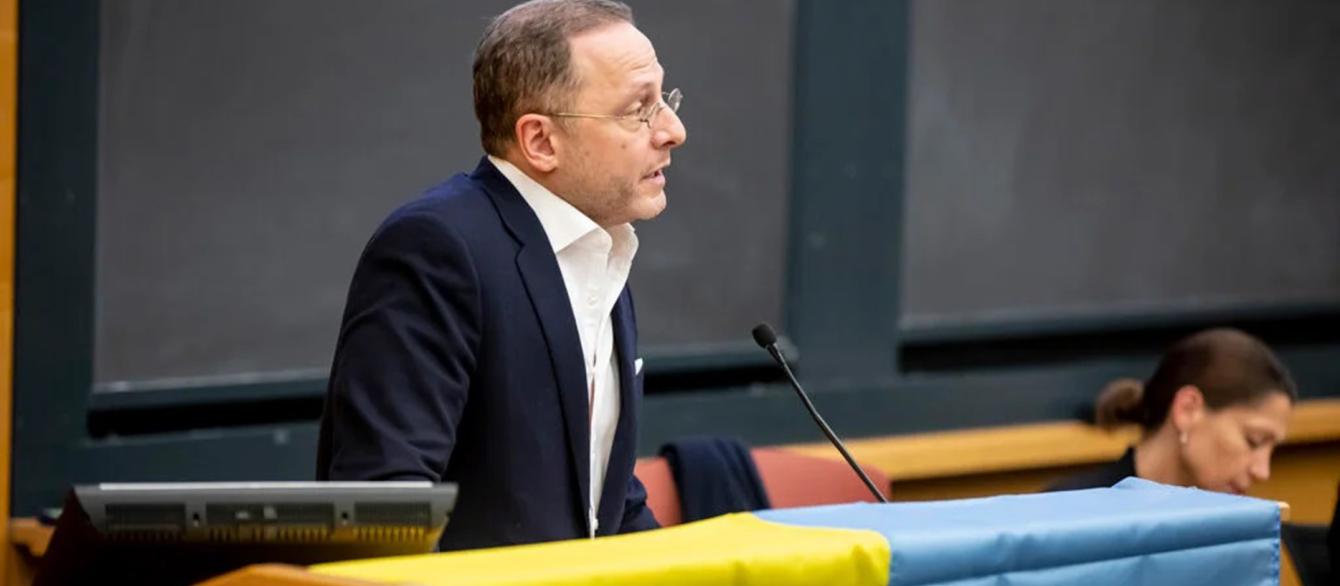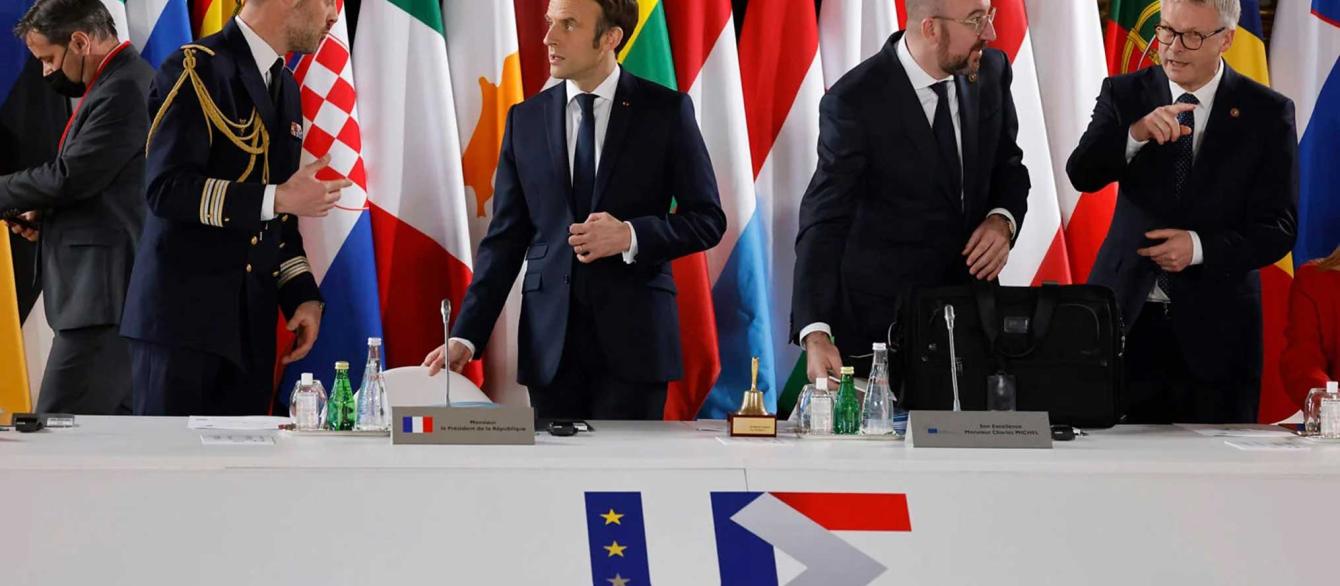The Russia-Ukraine conflict has led to an unprecedented experiment in unplugging one of the world’s biggest nations from the global economy, a development that will have broad consequences for the foreseeable future, an expert said Wednesday.
“We’ve never seen anything like it,” said Alexandra Vacroux, executive director of Harvard’s Davis Center for Russian and Eurasian Studies, in a panel discussion at Tsai Auditorium. “Russia is the 11th-largest economy in the world. The other countries that have been sanctioned like this—and no one has been sanctioned to this extent—have been tiny compared to Russia.”
Vacroux said that Russia could see a Great Depression-level decline in gross domestic product. Globally, effects will include disruptions not just to energy and stock markets, but to food supply and agriculture because Russia and Ukraine are major wheat and fertilizer exporters.
Vacroux said removing Russian banks from the SWIFT financial communication system was thought to be the “nuclear option” because the system handles transfer requests and payment instructions across the international banking system. But then Western nations went further and sanctioned the Russian central bank itself, cutting the nation off from international accounts that held roughly half the reserves President Vladimir Putin had built up for a crisis.
The sanctions mean that Russians had no way to pay for imports of everything from auto parts to aircraft avionics to computer parts and consumer goods. Corporate action has been another economic blow, as some 200 companies—including McDonald’s and Starbucks—have announced they were suspending or cutting ties with Russia.

Panel moderator Rawi Abdelal speaks with Ukraine's flag displayed on the podium.
Russia’s stock market has been closed for more than a week and the ruble’s value has fallen 40 percent. The country has avoided a run on banks because the central bank had plenty of reserves on hand, ensuring that citizens have been able to withdraw cash. A key date looms, however, as a payment on Russia’s sovereign debt is due Wednesday and default appears a possibility.
The U.S. has ended purchases of Russia oil, a step that is likely to drive energy prices up, but European dependence means Russian oil and gas have continued to flow despite sanctions. On March 3, for example, Russia received a $720 million payment from Europe. While the sanctions may serve to punish Russia for its invasion of Ukraine, Vacroux said she doubts they will act as a deterrent because Russians don’t believe that the sanctions will be lifted if they change course.
Mariana Budjeryn, a research associate at Harvard Kennedy School’s Project on Managing the Atom, noted that Putin has been quick to issue nuclear threats. That warning has had an effect, making the U.S. and European nations reluctant to take steps that might put them in direct conflict with Russia, such as implementing a no-fly zone or sending major weapons systems, like fighter jets, to Ukraine.
Oxana Shevel, an associate professor of political science at Tufts University and a Harvard Ukrainian Research Institute associate, said she believes Putin’s goal is eliminating Ukraine as a sovereign state, and that his actions are helping forge the Ukraine he hoped to avoid. Ordinary Ukrainians’ sense that this fight is an existential one has spurred them on against steep odds, she noted, sustaining an underdog story that has inspired people around the world.
“People are determined to fight and die because they don’t want to live as slaves, it is as simple as that,” Shevel said. “Putin is nation-building in Ukraine like no nationalist ever could. He is bringing his own fears to reality.”
This article originally appeared in the Harvard Gazette on March 10, 2022.






